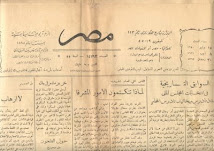The National Democratic Party (NDP) has governed the Arab Republic of Egypt, which has a population of approximately 82 million, since the party's establishment in 1978. The NDP, which continued to dominate national politics by maintaining an overriding majority in the popularly elected People's Assembly (PA) and t
 he partially elected Shura (Consultative) Council, derives its governing authority from the 1971 constitution and subsequent amendments. Executive authority resides with the president and the cabinet. In 2005 President Hosni Mubarak won a fifth consecutive six-year term with 88 percent of the vote in the country's first presidential election, which was marred by low voter turnout and charges of fraud. The civilian authorities did not always maintain effective control of security forces, who committed numerous, serious abuses of human rights.
he partially elected Shura (Consultative) Council, derives its governing authority from the 1971 constitution and subsequent amendments. Executive authority resides with the president and the cabinet. In 2005 President Hosni Mubarak won a fifth consecutive six-year term with 88 percent of the vote in the country's first presidential election, which was marred by low voter turnout and charges of fraud. The civilian authorities did not always maintain effective control of security forces, who committed numerous, serious abuses of human rights.
The government's respect for human rights remained poor, and serious abuses continued in many areas. The government limited citizens' right to change their government and continued a state of emergency that has been in place almost continuously since 1967. Security forces used unwarranted lethal force and tortured and abused prisoners and detainees, in most cases with impunity. Prison and detention center conditions were poor. Security forces arbitrarily arrested and detained individuals, in some cases for political purposes, and kept them in prolonged pretrial detention. The executive branch placed limits on and pressured the judiciary. The government's respect for freedoms of press, association, and religion declined during the year, and the government continued to restrict other civil liberties, particularly freedom of speech, including Internet freedom, and freedom of assembly, including restrictions on nongovernmental organizations (NGOs). Government corruption and lack of transparency persisted.
The government made significant and effective efforts to combat female genital mutilation (FGM). These efforts included education, outreach, and the passage and enforcement of legislation criminalizing FGM. In addition, courts issued the first two convictions on sexual assault charges.
The constitution provides for freedom of belief and the practice of religious rites; however, the government restricted the exercise of these rights. According to the constitution, Islam is the official state religion, and Shari'a (Islamic law), the primary source of legislation. Religious practices that conflict with the government's interpretation of Shari'a are prohibited.
Members of non-Muslim religious minorities officially recognized by the government generally worshiped without harassment and maintained links with coreligionists in other countries.
Members of religions not recognized by the government, particularly Baha'is, experienced personal and collective hardship. Religious groups seeking recognition must submit a request to the MOI, which determines whether, in its view, the group would pose a threat to national security or social order. The MOI also consults leading religious figures, particularly the pope of the Coptic Orthodox Church and the sheikh of Al-Azhar. The last official recognition of a religious group occurred in 1990. The government did not recognize marriages of citizens adhering to faiths other than Christianity, Judaism, or Islam, nor did it recognize conversions of Muslim-born citizens to other religions.
The law prohibited blasphemy and the "denigration of religions." Though there were no reported prosecutions, at least one Koranist was arrested and was being held without charges at year's end. The government prosecuted members of religious groups whose practices deviated from mainstream Islamic beliefs and whose activities were believed to jeopardize communal harmony.
The law bans Baha'i institutions and community activities and stripped Baha'is of legal recognition. The government continued to deny civil documents, including ID cards, birth certificates, and marriage licenses to members of the Baha'i community. The MOI requires identity card applicants to self-identify as a Jew, Christian, or Muslim. As a result, Baha'is faced difficulties in conducting civil transactions, including registering births, marriages, and deaths, obtaining passports, enrolling children in schools, and opening bank accounts. During the year Baha'is were compelled either to misrepresent themselves as Muslim, Christian or Jewish, or go without valid identity documents. Many Baha'is chose the latter course.
Traditional practices and some aspects of the law discriminated against religious minorities, including Christians and particularly Baha'is. The law requires non-Muslims to obtain a presidential decree to build a new place of worship. In addition, MOI regulations, issued in 1934 under the Al-Ezabi decree, specify a set of 10 conditions the government must consider before a presidential decree for construction of a new non-Muslim place of worship can be issued. The conditions include the requirement that the distance between a church and a mosque not be less than 100 meters (328 feet) and that approval of the neighboring Muslim community be obtained before a permit to build a new church may be issued.
You could read the whole report at: 2008 Human Rights Report: Egypt













